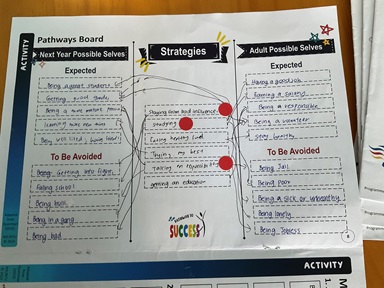Unlocking Math Potential - Why Ordering Skills Matter
OER 05/22 JDMM - Mechanisms underlying numeral ordering skills in children
Project Team
PI: Dr Jose David Munez Mendez, CRCD, NIE
Co-PI: Dr Pierina Cheung, CRCD, NIE
Co-PI: Dr Rebecca Bull, Macquarie University
Project Description
Recent research highlights the important link between young children's numeral ordering skills and their overall math achievement. Studies show that being able to tell whether numbers are in the correct order is a strong predictor of future math success. Indeed, numeral ordering may be an even better indicator of math risk than other basic skills, like comparing numbers. Some researchers suggest that this skill involves a deeper understanding of how the numerical system is structured, highlighting its importance in early math learning.
Building on previous studies that have investigated other foundational math abilities in Singaporean children, this study aimed to explore the relationships between ordering skills in numbers, letters, and time, and how these skills contributed to various aspects of mathematical learning in K1 and P4 children.
Using a longitudinal design, the research team collaborated with two MOE kindergartens and primary schools from 2022 to 2024 to assess children’s ordering skills alongside other cognitive abilities and their mathematical growth over one academic year. Findings revealed a robust association between children’s math abilities and their numeral ordering skills. This relationship was particularly strong among school-age children and appears to be independent of other basic numerical skills, such as magnitude comparison. These results call for further research into whether numeral ordering skills are specific and sensitive predictors of math difficulties throughout the school years.
Project Implications
These findings could have significant implications for guiding preschool teachers in fostering an understanding of numeral ordinality and numeral order. Because such understanding relies on how the numerical system is operationalized, activities that involve recognition of the specific order of numbers 1 to 9 are recommended.
Recommendations for practitioners:
- Include activities that require ordering non-adjacent numbers rather than simply ordering all numbers.
- Focus on the placement of each number on the number line, with smaller numbers positioned toward the left and larger numbers toward the right.
- Incorporate activities that require disentangling numerical symbols from their original order. For instance, in the sequence 3-5-6-8, the second number is 5.
- Provide a greater number of activities that emphasize the position of larger numbers (6 to 9) on the number line, as children are often more familiar with smaller numbers and their placement.
Resources
Selected Talk
- Ordering skills in young children and associations with math abilities. EARLI SIG 5 Conference, Warsaw, Poland.
Selected Article
- The understanding of numerical order and its role in the development of arithmetic abilities. Ibe.unesco.org
SingTeach Article






.tmb-listing.jpg?Culture=en&sfvrsn=b0306905_1)